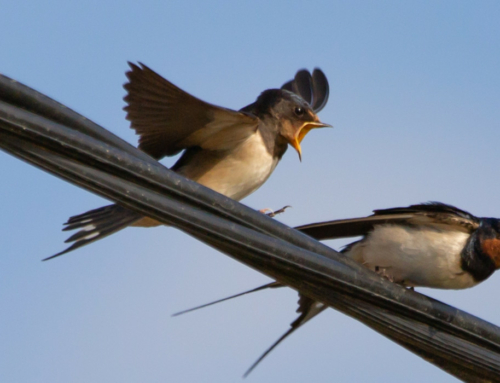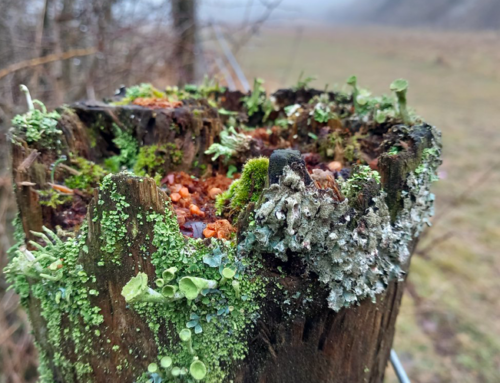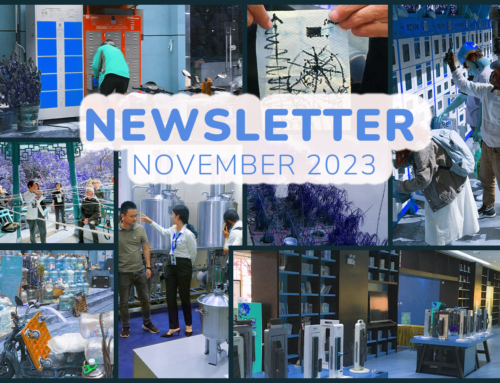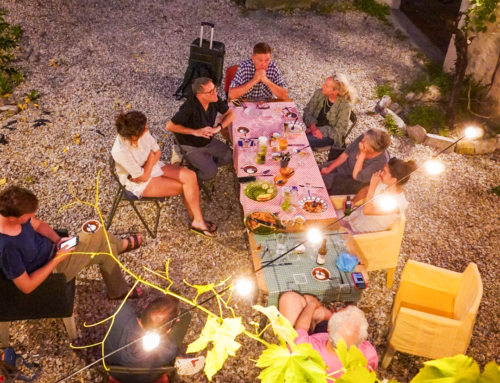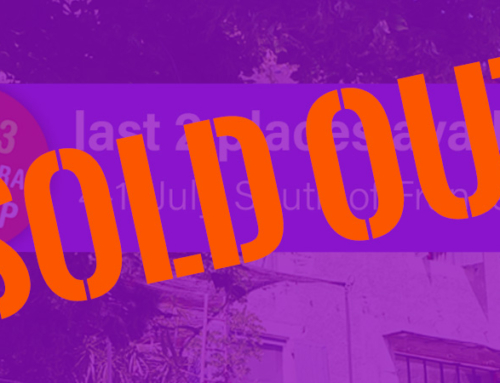CONTENTS
- Dates for my 2020 Meetups and Retreats
- Report on our Urban-Rural exhibition in China
- Next steps for the Social Food Atlas
- Recent publications
- Thirty-two case-study collections
- Five recommended books
2020 MEETUPS/RETREATS
For a second year, I’m hosting week-long Meetups|Project Retreats| Residencies at our home in France. If you are a designer, project curator, (post-)grad student, researcher, or writer – and are working on a thesis, project, or book – check it out here.
WINTER RESIDENCIES
If you need a personal phase-shift right now, we’re also hosting a small number of winter residences.
URBAN-RURAL DESIGN IN CHINA
In November, I curated an exhibition in China called Urban-Rural. Framed by our transition from the oil age to a soil age, its focus was the emergence of a new urban-rural economy. Highlights on these 82 slides include: ten ways to restore soil; farmers live streaming to the city; Shanghai’s BIOfarm; a repair cafe; bioregional fiber economies; rural village hosts, Chinese-Italian fermentation.
Among my ten takeaways from the project: the soil age is more about about relationships, than pre-cooked solutions. Urban and Rural are one place, not two. Analogue and digital are also one place, not two. Making things in a soil age, and leaving the land healthier, are also a single process.
The exhibition concludes with an an Urban-Rural To-Do List (slide 80). These actions are among the next steps in a larger project called Design Harvests 2.0 that will soon appear on the ‘learning landscape’ of Zhangyan. More on that in the new year, but this book (176 pages, pdf to download) tells the story so far. Its by Professor Lou Yongqi, Francesca Valsecchi, and Clarisa Diaz.
TALK
Can small changes ever lead to system transformation – and if so, how? Here is my talk (25m) in Shanghai
SOCIAL FOOD ATLAS
The Social Food Atlas continues to grow. Launched in Italy, in April, entries now range from Austria to Ukraine. They include municipal gardens and urban farms; community meals; social harvest festivals; farmer-to-farmer meet-ups; food waste platforms; community kitchens; community baking and brewing sites; care farms; school gardens; street food festivals; cooperative grain growing; farm hacks; regional gatherings; farm tours; and many more. The Atlas is published together with Casa Netural and #Matera2019,
SOCIAL FOOD FORUM
Fifteen social food curators met in Matera for the launch of the Social Food Forum. A two minute video is here. We discussed the different kinds of value created by social food projects. In particular, they create ‘public goods’ in the form of social cohesion, public health, territorial development, food sovereignty, farmer livelihoods, learning, innovation, and biodiversity. We are discussing how to do more of this work, with more partners, and in more places, in the near future. The Forum is a legacy of #Matera2019.
FOUR PUBLICATIONS
Bioregioning: Pathways to Urban-Rural Reconnection
My 6,000 word paper, which was published in China’s design and innovaton journal She Ji, is now available as a pdf.
Re-wilding the Bauhaus: what its foundation course should be like today
To mark its centenary, the Bauhaus published Design Rehearsals: Conversations About Bauhaus Lessons. My contribution proposes for a new Vorkurs, or Foundation Course. It would foster ecological literacy, and a whole-systems understanding of the world.
Design As A Tool for Transition: The Atelier Luma Approach
At Atelier Luma, designers and artists discover new kinds of value among the social and ecological assets of the Camargue bioregion. Their focus is on making connections, and supporting relationships, at a system-wide scale. For their new book, I contributed a chapter on Making as Connecting.
Back To The Land Reader
This reader was prepared for the annual Back To The Land 2.0 summer school in Sweden that I run together with Konstfack (Cheryl Akner-Koler) and Annika Göran-Rodell.
People Doing Stuff: 32 Case Study Collections
Abstract words like climate, sustainability, or extinction, generate plenty of anxiety – but not much action. I’ve learned the hard way that imagined futures, and green utopias, are not much more effective; they’re too far removed from most peoples’ lived experience. What does work are examples of real people, taking practical steps, right now. Such examples answer the question: “what am I supposed to do?”. With that lesson in mind, I’ve posted links to 32 case study collections. Take a look.
FIVE RECOMMENDED BOOKS
The Overstory
Richard Powers writes about “tree-consciousness, cultural epiphanies, a world going up in flames, and what lies beyond despair”. The idea, he explains here, is that there is no separate thing called humanity, any more than there is a separate thing called nature. “Now, when we look at a forest, we see a highly cooperative and interdependent system that you can almost think of as a superorganism”.
Playing For Time
“We’ve gone as far as we can with facts and information. We must tap into emotion and values”. From learning journeys, to water museums, Lucy Neal’s inspiring book features artists who focus on participation, connection, and relationship. One of my favourites is the social fermentation practice of Eva Bakkeslett – the ways in which making, eating, and sharing fermented foods remind us that we are part of nature, linked to a network of bacteria.
Cultivating Knowledge: Biotechnology, Sustainability and Cotton Capitalism in India
The search for ‘sustainable’ fashion and textiles was long constrained by a search global and technical solutions within a Business As Usual framework. A consensus is now emerging that sustainable fashion will be regional, ecological, and social. What might that mean in practise? This respectful account of cotton farmers’ lives across rural southern India is a timely example of this new approach. The anthropologist Andrew Flachs recounts how “a single seed is more than just the promise of a plant; it represents diverging paths toward a sustainable livelihood”
Pluriverse: A Post-Development Dictionary
If, like me, you’re perplexed by the word “development”, and the destructive notions of “progress” it entails, then download this book. Its 100 entries honour cultural world views and practices from all over the world: old and new ones, local and global, indigenous, peasant, pastoral, urban, environmental, feminist, spiritual.
Low Tech Magazine: The Printed Website
The soil age will involve the rediscovery of machines that have already been invented – from water motors and rope drives, to cargo bikes and fruit walls. Most of them can of course be improved. Kris de Decker’s Low Tech Magazine explores the interesting possibilities that arise when you combine old technology with new knowledge and new materials; or when you apply old concepts, and traditional knowledge, to modern technology. The best bits are now available as a printed website.
2020 MEETUPS/RETREATS
A reminder of the week-long MeetUps|Project Retreats|Residencies that I’m hosting next year at our home in France. Even if you can’t come yourself, they’d be a wonderful gift. And if you need a personal phase-shift right now, we’re also hosting a small number of residencies.
